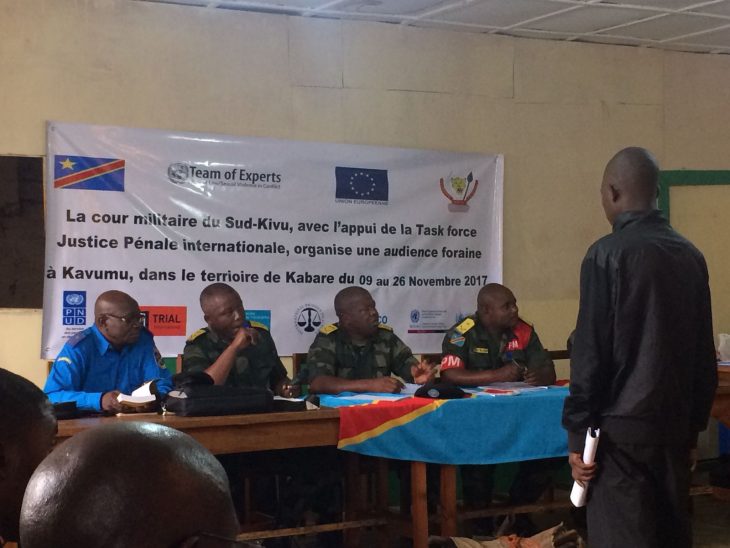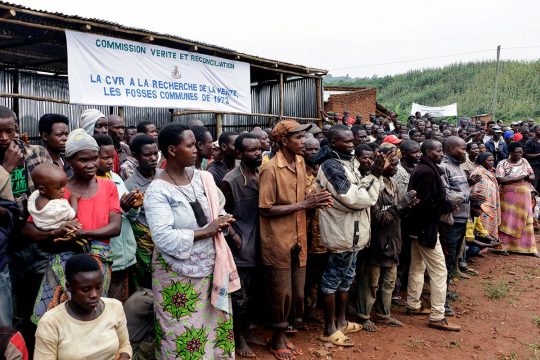The International Criminal Court’s decision to investigate crimes committed in Burundi, announced on Thursday, was the highlight of this transitional justice week.
This ICC decision came just two days before Burundi’s withdrawal from the Court became effective on October 27. It is the first country to pull out of the ICC. The ICC Prosecutor had opened a preliminary examination into crimes committed in Burundi before Bujumbura announced it was leaving the Rome Statute. “By quitting membership of the Court, Bujumbura thought it would secure impunity,” writes our ICC correspondent Stéphanie Maupas. “The Court has said otherwise.”
To stay in power, the regime of Pierre Nkurunziza has killed dozens if not hundreds of people and caused the displacement of more than 400,000, according to the ICC Prosecutor. Despite Burundi’s withdrawal from the Court, the suspected perpetrators of these crimes can still be brought to justice before the ICC for acts committed between April 2015 and October 27, 2017. The Prosecutor could also investigate crimes committed after Burundi’s official withdrawal from the ICC on October 27, 2017, notably forced disappearances which are considered a crime with no time limit on jurisdiction under international law. Numerous opposition members, human rights activists and journalists have disappeared during the regime’s brutal clampdown. It remains to be seen how the ICC will conduct its investigations given that the Burundian government is likely to refuse collaboration with the Court and intimidate or eliminate potential witnesses.
But Lambert Nigarura, president of the NGO coalition for the ICC in Burundi, thinks this sends a clear signal to the authors and accomplices of the crimes. “They will no longer be able to amuse themselves while committing crimes on the civil population without fear of justice,” he says.
Historic rape trial in DRC
Another step forward for transitional justice this week was in the Democratic Republic of Congo where an unprecedented trial opened on Friday for rape and mutilation of young girls between 2013 and 2016 in Kavumu, South Kivu province, by the so-called “Army of Jesus” militia. According to sources close to the case, the militia thought they would acquire supernatural powers by committing such crimes. The military judges will sit for this historic trial in the place where the crimes were committed, in the village of Kavumu. Among the accused is local politician Frédéric Batumike, suspected leader of the “Army of Jesus”.
“The terrible crimes committed in Kavumu between 2013 and 2016 are a microcosm of the scourge of sexual violence still ravaging the Democratic Republic of Congo,” Daniele Perissi of NGO Trial International told JusticeInfo. “This trial highlights the need to tackle impunity, so as to prevent future crimes.”
A counter-example of this justice in the making is Mexico, where activists say crimes against humanity committed in the name of the war on drugs that started in 2006 have left some 200,000 people dead and at least 36,000 disappeared. A documentary to be broadcast on the Arte TV channel on November 27 and entitled “Mexico: Justice for the disappeared” tells of how a group of Mexican and international NGOs filed a complaint to the ICC Prosecutor in July 2017 and of the long fight for what seems impossible justice. The NGOs want to use the ICC as a lever to force the Mexican authorities to deliver justice, writes JusticeInfo. But the Court’s inertia is a cause of bitterness and is fuelling all kinds of suspicion.







